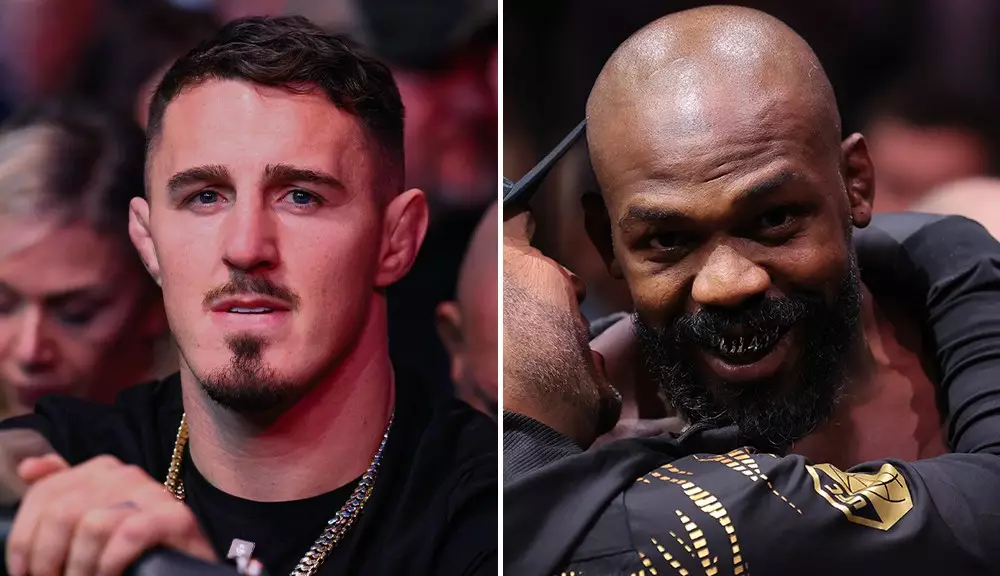In the high-stakes world of mixed martial arts, timing and opportunity are everything. Interim UFC heavyweight champion Tom Aspinall is poised to take his shot at unifying the heavyweight title against Jon Jones, the undefeated former champion, after a significant performance at UFC 309. Aspinall’s journey has been marked by resilience, skill, and an unwavering belief in his capabilities. His recent victory over Stipe Miocic, courtesy of an impressive spinning back kick, solidified his position within the organization and demonstrated his readiness for the next challenge.
Jon Jones, who recently declared his intent to continue fighting, addressing the crowd with a decisive message that he is far from retiring, has inadvertently set the stage for Aspinall. During post-fight comments with Joe Rogan, Jones insinuated that his future still holds significant fights, raising the excitement among the fanbase and competitors alike. It was during this moment that Aspinall witnessed a noteworthy exchange with UFC executives Dana White and Hunter Campbell, which left him optimistic about his prospects. Aspinall’s claim that both executives acknowledged him with a simultaneous nod signals not just friendliness but a cue of impending matchmaking—an invaluable insight into the decision-making processes of the UFC.
For Aspinall, who served as a backup fighter, the experience was both exhilarating and nerve-wracking, caught in the limelight while awaiting potential involvement in a high-profile matchup. After UFC 309, the British fighter appears more confident than ever, hinting at a future showdown with Jones that could unfold as one of the biggest events in MMA history. “If that doesn’t interest Jon Jones, then I don’t know what else we can do,” he stated emphatically, capturing a common sentiment among fans and analysts alike. There exists a palpable anticipation surrounding this potential clash—an opportunity for Aspinall to etch his name among the legends of the sport while challenging its most dominant figure.
This prospective matchup transcends merely two athletes competing; it embodies the aspirations of an entire division hungering for a definitive showdown to determine the rightful heavyweight champion. The stakes couldn’t be higher—Aspinall stands to prove his legitimacy, while Jones seeks to maintain his status as a fighter who defies age and expectation. For fans, this is not just about titles; it’s about legacy, entertainment, and the ongoing evolution of UFC heavyweight competition.
As discussions and negotiations continue, both fighters remain focal points of excitement in the MMA community. Fans are rightfully curious to see how this narrative unfolds, not only for Aspinall and Jones but for the landscape of heavyweights. The potential fight carries implications beyond the octagon, symbolizing the relentless quest for supremacy, which defines mixed martial arts. In this fluctuating arena, Aspinall’s belief in his path forward signifies a thrilling chapter yet to be written in the history of the UFC.

